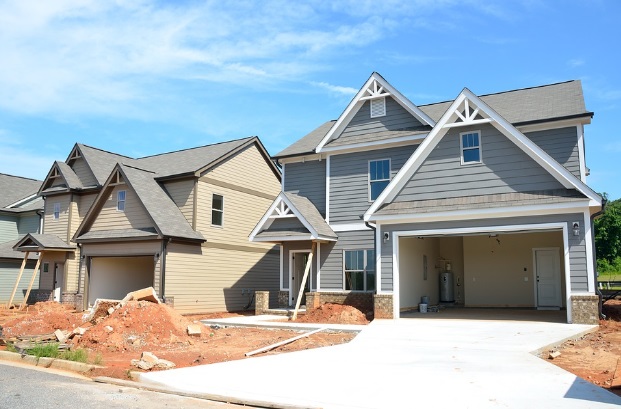
The image of the American dream is enough to make you pack your bags and uproot your family. Just think, within 24 hours you can be on the beach sipping on a cocktail, or in a bar socialising with the stars. Better yet, why not stroll down Fifth Avenue from your Midtown apartment and take in Times Square? Yep, the idea of living in the USA is appealing, which is why a large percentage of Aussies opt for the Land of the Free.
Don’t get it wrong; we love lots of places around the world. Ask the poms and they say Londoners can’t move in their capital for “convicts.” Surveys also suggest New Zealand, Greece and Spain are high on the hit list too. But, for the most part, the United States is the prime destination. So, why is it a bad choice?
The main reasons are:-
Tax Exemptions: Just because you want to get on the real estate ladder abroad doesn’t mean you are going to give up the Aussie pad. Sydney; Melbourne; Perth; Brisbane – they’re fantastic places to own a home. Sadly, the benefits which you get for being a citizen of the land down under disappear as soon as you become an expatriate. Take tax for example. Everyone wants to avoid paying the piper, mainly out of spite, and nationals can and it's thanks to a capital gains exemption. Hold on, though, because it only applies if you live in the country. As soon as you say “Sayonara, sensei”, the government take back the promise. And, it’s not as is they are in the wrong. Australia likes to look after its own, and you don’t count once you pledge allegiance to another flag. That’s true even if you hold dual-citizenship.
Bank Loan Percentages: “Aha, but I’m not looking to retire,” is the retort. “It’s just a business transaction!” Smart thinking, however, the government isn’t the only foe. Odds are you don’t have the money to invest with an influx of credit. And, banks and private lenders are the most likely options. Well, a reputable company won’t take the risk because the collateral will be on an existing property. Unless there is some form of positive equity, there is nothing in it for the lender. As a result, they tend to reject applications for loans that are meant for overseas transactions. Going off the beaten track only makes the situation worse, which is why a “no thank you” is a bit of a kick in the Crown Jewels. Of course, you can go au naturel and use cold, hard cash, but it’s fine to find in this current climate.
Xenophobic Banks: Okay, let’s not slander the name of American banks. The people at Wells Fargo and JP Morgan are fine fellows that have a fiduciary duty to their customers. It isn’t like they’ve put a foot wrong in, say, the last five years. We all know the American banks were at fault for the recession of ’10 yet they act like butter wouldn’t melt. This isn’t even about them offering newfangled CDOs and not learning from their mistakes. Nope, it’s about overseas loans being treated as a commercial deal rather than a residential loan. Obviously, this scuppers your plans because it’s almost impossible to show the ROI on a property. Sure, you think it’s going to increase in value, but the profit margin may not reveal itself right away. Anyone that thinks they can head to the US of A and secure a loan is wrong, unfortunately.
Wishy-Washy Market: The people in charge love to say, “Look, Obama did great work and we’re back on the right track.” Not to assume Barack didn’t do a very good job because he did. It’s safe to say the majority of Americans would take him back in a heartbeat. And, the real estate market in the US is stronger than at most times in the past ten years. Still, the strength of the industry isn’t the only factor to consider. When you put them all together, it makes for a tough read. Let’s use the example of San Diego. SD has seen an increase of 8.4% in home values, which sounds good but is worrisome compared to the rate of wage and unemployment growth. The latter is a miserly 1.9%, and that means it would take longer to pay off a mortgage. Ron Burgundy’s hometown is just one example and this slideshow has a list of 20 cities. What about the good ones, the ones where all the percentages are positive? Well, New York is extortionate and LA isn’t far behind, so buying in those cities is improbable.
Far Out In The Far East: Admit it; the States seems like a good move because of the lifestyle. It’s similar and you feel like you know it because you watch TV. What this attitude does is cut off the excellent real estate opportunities around the world. Before, we talked about how you need to pay in cash and how it was difficult. And, it is true when you aren’t referring to the Malaysia property market or the ones in Myanmar, Thailand and Vietnam. That’s without mentioning India, obviously, or Europe where Brexit could have an impact for the Australians. Granted, the USA is where you want to live or retire to in your golden years, and it’s understandable. However, never forget there are wonderful spots that are cheaper and easier.

Bali: A single word that is elegant and beautiful in equal measure. Ah, the tropical paradise that is the Indonesian island of Bali. Then, the Aussies turned up and it’s like being in WA with better beaches, surfing and a handful of local people. The point is there is no reason to move halfway around the world for a similar culture when Bali is a six-hour flight away. Not only is it Australian-like, but it’s cheaper and has lots of real estate potential.
Are you looking to invest abroad? Which one is your country of choice?
| < Prev | Next > |
|---|





